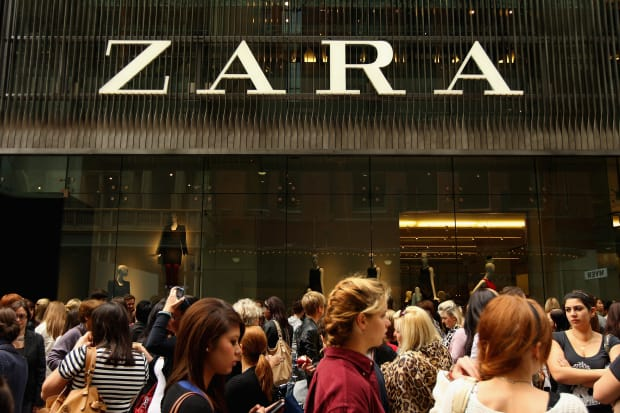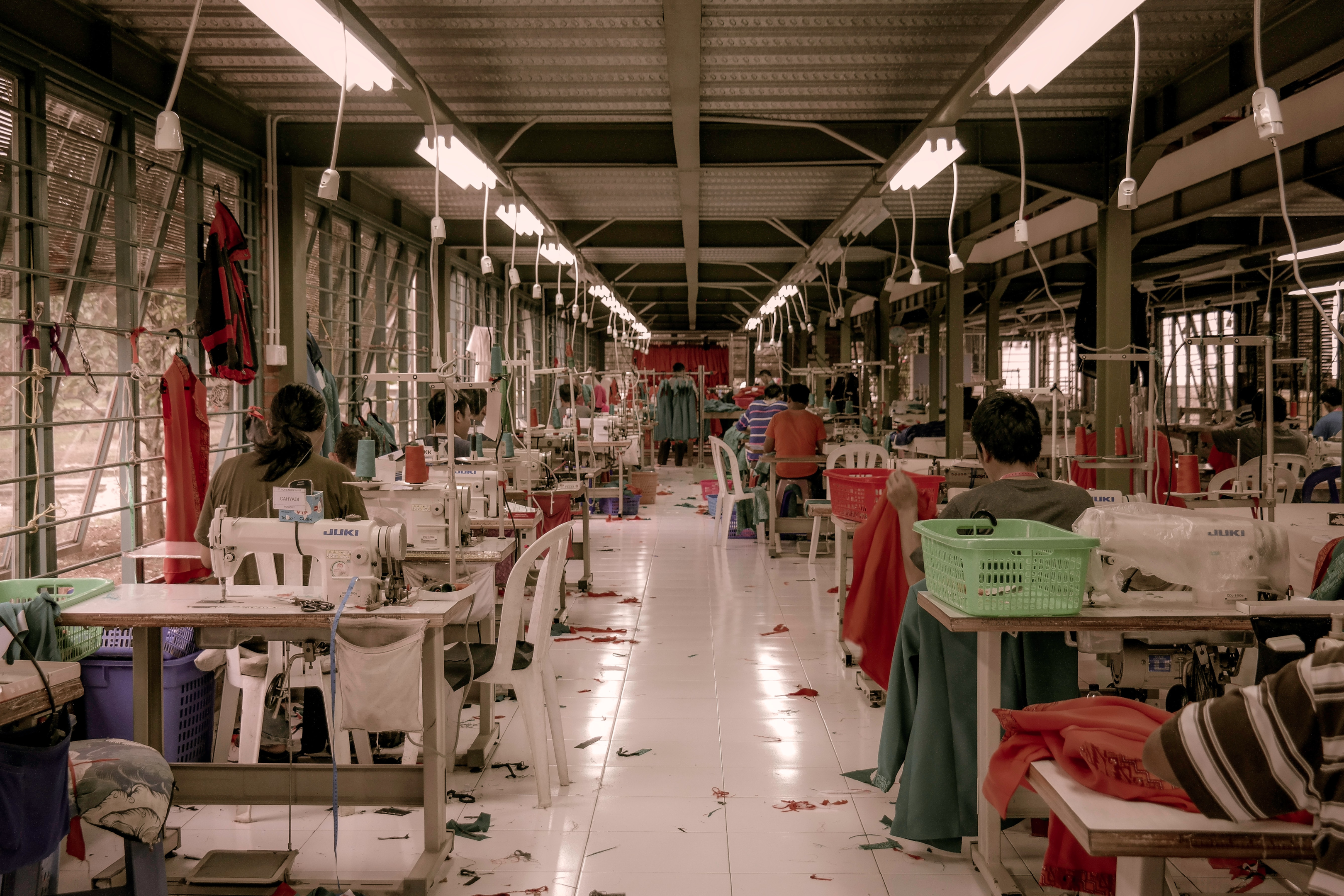We’re buying more clothes than ever. According to the UN Alliance for Sustainable Fashion, the average consumer buys 60% more clothing than we did 15 years ago. But we keep them for only half as long.
Fast fashion – the term used to describe the low-cost, mass production of fashion trends – means anyone can now get their fashion fix.
Although it’s great that the latest trends are accessible to all, we should be aware of what our fashion addiction is doing to the planet.
With London Fashion Week launching on 16th September, now’s a good time to reflect on the relationship between the clothes we buy and our planet.
How did fast fashion happen?
It's worth rewinding for us to understand the speed with which fast-fashion has developed. In the 1880s fashion was much slower: it was up to you to source your own materials, such as wool, then prepare the material for making clothes.
In the industrial era, new technologies were born, such as the sewing machine. Clothing then became easier to manufacture and more affordable. Fashion stores were established as an outlet for the middle classes.

The term 'fast fashion' was first coined by The New York Times in the 1990s after fast-fashion giant Zara described their mission – being able to take a garment from a designer's brain to clothing rail in just 15 days.
It's estimated that the world now uses around 80 billion pieces of clothing each year, four times more than we did just two decades ago.
Why is fast fashion so bad?
1. The environmental impact of fast fashion
Carbon emissions
Our clothing carries an environmental cost in terms of resources used: energy, water, land and chemicals. Although estimates vary, we know that the fashion industry contributes anything between 2 to 10% of global carbon emissions. Despite efforts to reduce emissions, the industry is projected to miss the pathway to 1.5°C set out by the IPCC by 50% under its current trajectory.
Water
The fashion business is a thirsty industry, using up 79 trillion litres per year. Take cotton, for example: it requires 700 gallons to produce one cotton shirt and 2000 gallons to produce a pair of jeans. The world’s fourth largest lake, the Aral Sea, shrank to half its former size because of unsustainable cotton cultivation.
Waste
By encouraging us to keep up with the latest trends, fast fashion encourages overconsumption and a throwaway culture. Planned obsolescence is a term we usually associate with electrical goods, but it applies to clothes too. Like so many of our products these days, cheap clothes aren’t designed to last.
Increased textile production to satisfy our clothing consumption, plus poorer garment quality, has led to increased waste: £140m worth of clothing is sent to UK landfill each year. This represents a huge loss of valuable resources and contributes to climate change and environmental pollution.
Pollution
The fashion industry is a major polluter, whether it’s from textile factories and their toxic wastewater or from the pesticides created by conventional cotton production.
One of the most significant environmental pollutants is plastic. It gets everywhere – even our clothes. Most of them are made of synthetic fibres, with polyester the most popular. Synthetic fibres come from fossil fuels, which contribute to the fashion industry’s climate footprint (a polyester shirt, for instance, has double the carbon footprint of a cotton one).
When they’re washed, these garments shed plastic microfibres into the environment, making them a substantial contributor to ocean pollution.
2. The social impact of the fast fashion industry
Cheaper garments are only possible when production costs are reduced. This means businesses turning to cheap labour in the UK and in developing countries. Garment workers often end up working long hours for low pay, sometimes in very unsafe working conditions. The collapse of the Rana Plaza building in Bangladesh in 2013 is the worst example of this.
Child labour is also a problem in the fashion industry: because the fashion supply chain is so complex, it’s relatively easy for employers to hire children without getting found out.

How can you reduce the impact of your clothes shopping habits on the planet?
1. Reduce your consumption
By continuing to buy new clothes, we’re increasing demand. It’s better to cut back on new items, but this is not always realistic and fast fashion offers convenience at a low cost.
‘Second-hand’ often now means buying almost brand new, with lots of people using apps like Vinted or Depop to sell on their barely used clothes at great prices. On top of finding charity shop gems, this is a great way to give your clothes a second life and refresh your own wardrobe without supporting fast fashion.
Some fashion brands sell more sustainable, recycled clothing such as Patagonia, Lucy & Yak, Wolven & Fanfare. Whilst more expensive, these options have a much lower environmental impact and can be considered an investment as they'll last for much longer.
2. Reuse your outfits
The most eco-friendly outfit is one that's already in your (or even your friend's) wardrobe! Wearing your clothes for longer decreases your carbon, waste and water footprint.
To keep your outfits looking fresh you could even learn to mend and maintain your clothes (see Love Your Clothes for tips), or buy from brands such as Levis and Patagonia who offer free repairs on their items.
And if you really need something new for a special occasion there are lots of clothing rental services such as HURR or My Wardrobe HQ, where you can get the latest looks without the commitment.
3. Recycle your old clothes
When it's really time to say goodbye to old or unwanted clothes, consider giving them to friends or donating them to charity before putting them in the bin. Most local charity shops accept clothes in good condition or you can look for a clothing recycling bank near you via Recyclenow.com.
Many brands now offer take-back schemes which allow you to deposit your old clothing in the brand's stores (see M&S's Shwopping scheme), and at First Mile we've just launched our Return and Recycle points which allow any brand to set up in-store recycling.
Is fast fashion slowing down?
Although we've witnessed the emergence of ethical fashion over the last decade, fast fashion's brands still produce around 52 'micro-seasons' each year, meaning we buy more clothes than ever before, and £140 million worth of this ends up in UK landfills alone.
Some fast fashion brands are even starting to release new styles that are branded as being better for the planet. Although this could be described as progress, they're still producing a vast amount of fast fashion items alongside.
So although it looks like fast fashion isn't slowing down just yet, it's definitely evolving.
How can First Mile help?
1. Clothes recycling service
First Mile’s clothes recycling service for businesses gives unwanted clothes a new lease of life. We’ll accept:
· Clothing
· Handbags and bags
· Accessories: hats, belts, shoes
· Fabric; cloth; textile scrap
We've also just launched our brand new Return and Recycle Service, making it easy to return and recycle any material. You can put anything from jeans, t-shirts, jackets, shoes and coat hangers into the bin and we'll collect it, recycle it and ensure nothing goes to landfill.
2. Polybag recycling scheme
Polybags are the clear plastic bags that are used to pack, transport and store clothes before they’re displayed in shops. Under 15% of all polybags in circulation are collected for recycling. In 2020, First Mile and Fashion for Good ran a successful pilot scheme to tackle the issue of plastic polybag waste in the fashion industry. First Mile collected waste polybags from selected London retail stores and turned the bags into new plastic sacks. These were then delivered back to the brands to collect more polybag waste. You can read about the scheme’s achievements here.
3. Recycling coat hangers
Have you ever wondered if you can recycle coat hangers? ‘Where can I recycle coat hangers?’ is a popular search term on Google. We usually end up with too many of them and it’s difficult to know how to dispose of them responsibly.
If you’re looking for coat-hanger recycling in the UK, we can help you. Our coat hanger recycling service ensures that metal and plastic hangers are recycled and their materials repurposed so that nothing goes to waste.



